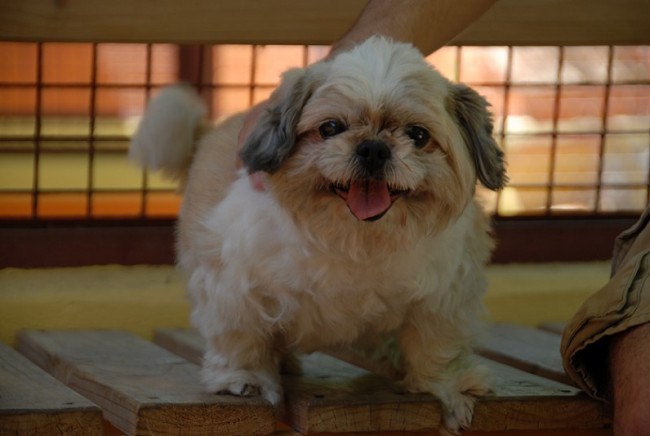and Dubai International Airport
and Dubai International Airport

So you’ve just come back from a visit to the vet… aaaaaand it wasn’t at all what you expected. You’re feeling pretty bad about it actually. The chat with the vet didn’t turn out as you’d expected - in fact, the consultation turned into a stern talking to (that’s not what I paid for!!). The more the vet spoke, the more you realised that this chat wasn’t just any ol’ chat! And when the vet said, “Your pet’s phat!” you soon realised the vet actually meant FAT. The colour quickly drained from your face and the smile slid off your face, there was some lip-wobbling and a lot of uncomfortable fidgeting going on in your chair. This planned, carefree check-up has turned into much, much more and the person that adores her pet SOOOO much is being lectured about how overweight her pet is… and that you (yes YOU) are to blame!
You always knew your pet was bootilicious, and there had always been regular comments amongst friends about your pooch when mentioning her curves, but you’d always brushed any of their comments of with “oh it’s just a bit of puppy fat”. You thought nothing of it, and you also thought it was nothing to worry about. But boy-oh-boy were you wrong!
You should be worried! And worst of all, this situation you’ve got your pet into is 100% preventable!! Yes siiiireee, all those larger-than-necessary meals and the odd daily treat along with the bits and bobs that fell off the table, (or... gasp!… were offered from the dinner table!!) have all added up and have now made your pet fat. Yep… F-A-T!
From the time you arrived home from the lecture... uh... consultation with your vet, you slowly but surely got to grips with the fact that you’re making your pet's life uncomfortable by being too kind! Yes folks, that’s what it comes down to and it can’t be easy to hear, but the larger meal portions and treats fed from your kindness and love, if not corrected, could potentially put your pet at risk for an array of weight-related health issues! We know you might be feeling guilty hearing this… but don’t beat yourself up too much - there is a lot you can change immediately to get her back on track.
Firstly, your vet would have immediately recommend a quality diet food and a meal-plan which you should strictly follow! And when starting a plan, it’s really important to discuss this with ALL members of the household and make them understand that NO MATTER what those big deep brown loving eyes are telling you… DON’T believe them and DON’T give in! It will take some time (for everyone) to adjust to the amount of food that is fed to your pet but don’t worry, your vet will advise the correct amount of food to ensure there are enough dietary requirements being eaten every day and to ensure she remains healthy and happy. You may notice that your pet will resist eating the food, especially if she is not used to the brand. Don’t fall for it. Eventually… she will start eating it! Sometimes pets who are fussy eaters can be coaxed into enjoying kibble more by adding in some water to the bowl, which softens the kibble and creates a gravy-like sauce! Yummmmy! For a tad more information on quality pet food brands that meet nutritional and dietary needs, just click here: http://www.dkc.ae/what-we-do/boarding-daycare/love-and-other-stuff-too
Secondly (and as you probably already know), exercise goes hand-in-hand with any diet. That means you’ve got to get your walking gear on because your pet is not going to take herself out for a walk without you! The diet alone isn’t always enough to shift the weight and there’s obviously a huge benefit in exercise for your pet (and you), both physically and mentally. And if you’re fatty is a cat or any other smaller animal, exercise does not always refer to walks: you can burn lots of energy (and quite possibly send them loopy too) by spending some time with a toy - a laser-pointer can have cats running around and around the room until they’re completely exhausted. So, think outside the box for exercise alternatives; there is a lot you can do if you’ve got a fatty that can’t go outside walking because of the heat, health issues or any other reasons.
Excess weight can be a very serious issue and, as in humans, can cause a wide range of health issues, including and more commonly, diabetes, breathing difficulties and joint related problems. Take the weighty conversation that your vet served you in your stride and accept their advice and guidance. Your vet will support and guide you through finding the best way possible to make healthier choices for your little fatty. And who knows, they might end up even happier than they already are!
Office Coordinators -cum- Receptionists
Animal Relocations Officers

